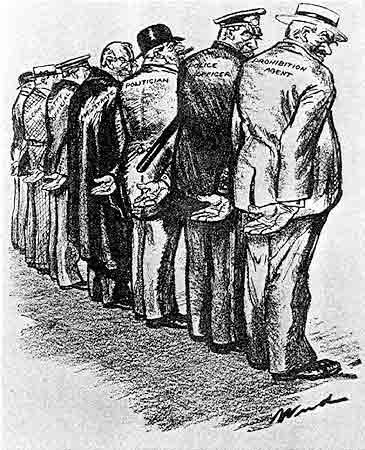talking history | syllabi | students | teachers | puzzle | about us
“The national gesture.”
In 1919, Americans ratified the 18th amendment to the Constitution, making it illegal to manufacture, sell, transport, import, or export drinking alcohol. Prohibition, as it was popularly known, proved impossible to enforce, as tens of millions of normally law-abiding Americans either broke the law or abetted those who did. Although the consumption of alcohol did decline, opponents of Prohibition argued that it engendered crime, corruption, and a disregard for law. Organized crime flourished around the profits to be made from selling illegal alcohol, and politicians and police were bought off wholesale. Bribery and corruption, although not always alcohol related, reached into President Harding’s cabinet—and then onto the front page. This 1926 cartoon by Clive Weed in the satirical weekly Judge comments on the escalation of governmental corruption during Prohibition.

Source: Clive Weed, Judge, June 12, 1926—American Social History Project.
